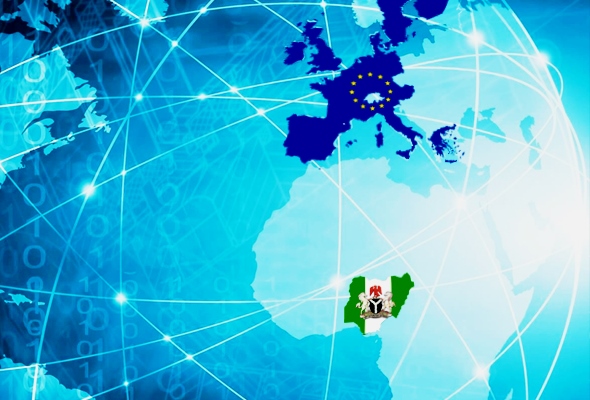Nigeria is capturing only a fraction of its digital economic potential and will need to make strategic investments to develop a dynamic, transformative digital economy, according to a new World Bank assessment.
The Nigeria Digital Economy Diagnostic says that with improvements in digital connectivity, digital skills, digital financial services and other core areas of digital development, Nigeria can fully unleash new economic opportunities, create jobs and transform people’s lives.
“As the biggest economy and Africa with one of the largest populations of young people in the world, Nigeria is well-positioned to develop a strong digital economy, which would have a transformational impact on the country,” said Isabel Neto, World Bank Senior Digital Development Specialist and co- author of the report. “Through innovations and investments, the Nigerian economy can harness digital data and new technologies, generate new content, link individuals with markets and government services, and roll out new, sustainable business models.”
The report provides an assessment of the state of the country’s digital economy around the five pillars of the Digital Economy for Africa initiative (DE4A); digital infrastructure, digital platforms, digital financial services, digital entrepreneurship and digital skills—key foundational elements of a digital economy. The report also offers specific, actionable recommendations to the government and stakeholders to further its development of each pillar. The DE4A is part of the World Bank Group’s support for the African Union’s Digital Transformation for Africa, which aims for every African person, business and government to be digitally abled by 2030.
In Nigeria, the digital economy is a key priority, as the report notes, the country has made some strides to strengthen the country’s digital space. Nigeria’s Economic Recovery and Growth Plan 2017–2020 (ERGP) recognizes the need for a digital-led strategy to make the Nigerian economy more competitive in the 21st century global economy. In 2015, the Nigeria Communications Commission proposed the transition of the economy into a digital economy through investments in digital infrastructure, and more specifically broadband, which is a key driver of digital economy growth. Nigeria’s international connectivity is well developed, and there are new digital platforms available such as the Central Portal for Government Services. Nigeria is also committed to universal education, including providing digital skills training, and it is home to several high-growth digital companies.
“There is a vibrant ecosystem of digital entrepreneurship in Lagos and Abuja that is supported by the dynamic incubators, venture capital companies, digital start-ups and the diaspora,” said Siegfried Zottel, World Bank Senior Financial Sector Specialist and co-author of report. “However, the growth of digital firms is not without challenges, such as a difficult business environment, lack of early-stage financing, and limited market opportunities outside of those cities, which would need to be addressed.”
Additional challenges and recommendations include:
- Improve digital infrastructure: Despite having the largest mobile market in Sub-Saharan Africa which is supported by strong broadband infrastructure and improved international connectivity, Nigeria has minimal fixed broadband infrastructure and connectivity in rural areas, leaving a significant number of the most marginalized segments of the population without internet access.
- Strengthen digital platforms: Strong public and private digital platforms support the provision of digital services and a thriving eCommerce platform. However, millions of Nigerians lack formal identification records to access a range of public and private services.
- Increase access to digital financial services: About 60 million Nigerian adults are without access to a formal account, stalling the country’s journey toward financial inclusion. Whereas in other African markets financial inclusion would mostly be driven by digital financial service (DFS) providers, in Nigeria the huge potential of DFS still remains untapped.
- Improve the policy environment for digital entrepreneurship: Despite its large, youthful, and entrepreneurial population, digital entrepreneurship is yet to be fully exploited given its potential to become an engine of economic transformation in Nigeria.
- Close the digital skills knowledge gap: The capabilities and skills required to use various forms of digital technologies remain limited to a small segment of the population. Increases in higher level education and the existence of accessible online training initiatives is bringing digital skills to those able to access them. However, low enrollment in basic education and the poor quality of that education coupled with a lack of digital skills in curricula is segmenting digital skills into a slim share of the population, excluding the poorest from the benefits of the digital world.





























